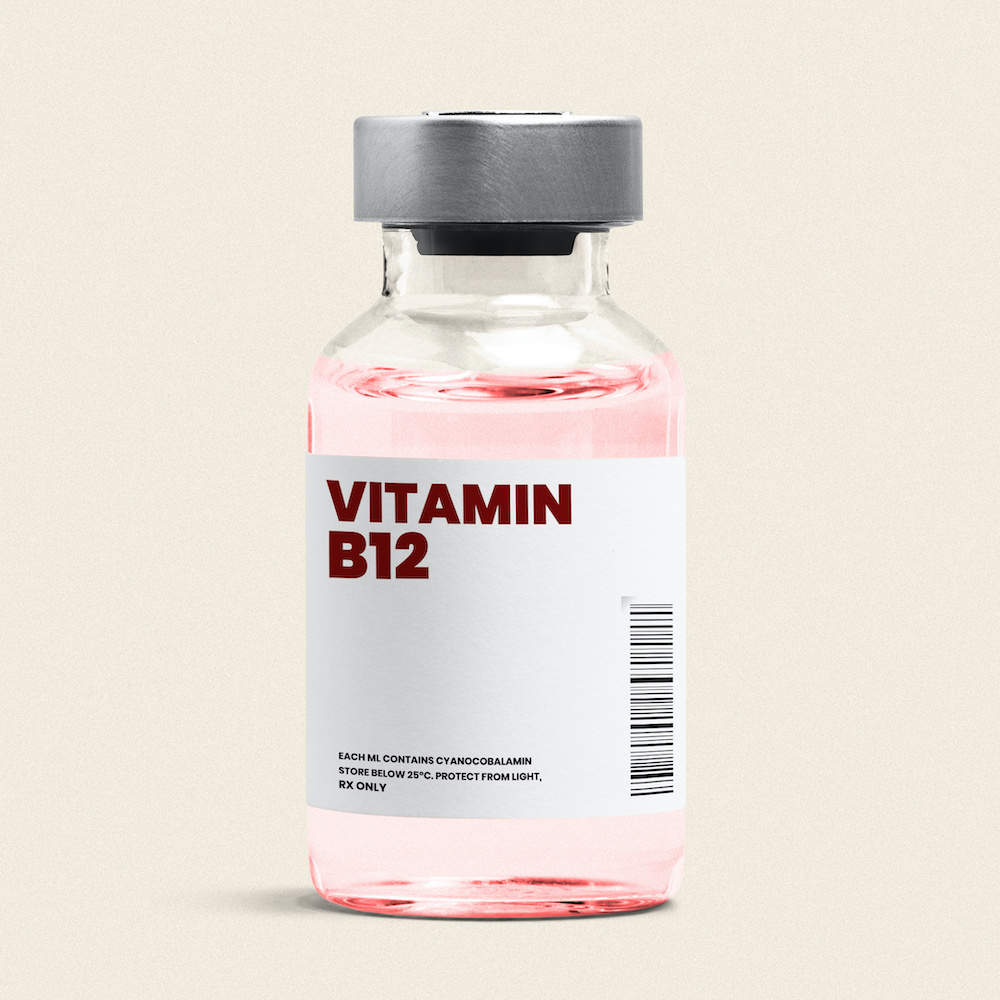Vitamin B12
What is the Vitamin B12 Injection?
The Vitamin B12 injection is an effective way to treat a deficiency. There is only one type of vitamin B12 injection available in the UK, known as hydroxocobalamin. Vitamin B12 tablets, also known as cyanocobalamin, can be bought over the counter from pharmacies or health stores, but are not as effective as the injection.
B12 is a water soluble vitamin that can exist in a number of forms, all of which contain the mineral cobalt. Performing several roles within the body, B12 supports the normal function of nerve cells and plays a vital part in the synthesis of red blood cells and DNA.
Many people don’t consume enough Vitamin B12 in their diet, particularly vegetarians and vegans. This is because B12 is only found naturally in animal products, such as meat, fish, milk, and eggs.
However, you could still benefit from B12 injections if you consume these foods as part of your diet. Some people just don’t absorb it very well due to a lack of a substance called intrinsic factor – a protein produced in the stomach that binds to B12, helping it to be absorbed into the blood.
B12 levels can decrease with age, as well as being lower in people who have undergone weight loss surgery, or suffer from pernicious anaemia, Crohn’s or celiac disease.
How often will I need the injection?: The injection can be given every 6 months if due to a dietary deficiency, or 2-3 months if the cause of your low B12 levels is pernicious anaemia. There is no need to be re-tested.
Since B12 shots are injected intramuscularly bypassing the digestive process, they start to work immediately. Typically, our patients experience positive effects between 24-72 hours after the treatment.
Many people regularly choose to have Vitamin B12 injections to help with their energy levels and brain function.
This is because your body needs B12 to make the healthy red blood cells that transport vital oxygen to your organs. Optimum B12 levels mean more oxygen to your brain, helping to reduce fatigue and help concentration.
Vitamin B12 may also play an important role in bone health, as studies have shown that low blood levels of B12 can be associated with an increased risk of osteoporosis in women.
Additionally, adequate levels of B12 in the blood are thought to contribute to healthy eyes, decreasing the risk of macular degeneration.
Whilst the effect of Vitamin B12 on mood is not yet fully understood, it plays a vital role in the synthesis and metabolism of serotonin – the chemical responsible for regulating your mood. Low levels of B12 could potentially lead to a decrease in the production of serotonin – ultimately causing or contributing to depression. Studies support the use of B12 injections alongside antidepressants for improving the symptoms of depression.
Avoid strenuous exercise for 48 hours after your treatment. Avoid touching the injection site for 6 hours after your treatment. You may experience a dull ache at the injections site for around 1 hour after your treatment. Avoid any blood thinning medication.
You should not use this medicine if you are allergic to Vitamin B-12 or cobalt, or if you have Leber’s disease (an inherited form of vision loss). This medicine can lead to optic nerve damage (and possibly blindness) in people with Leber’s disease.


